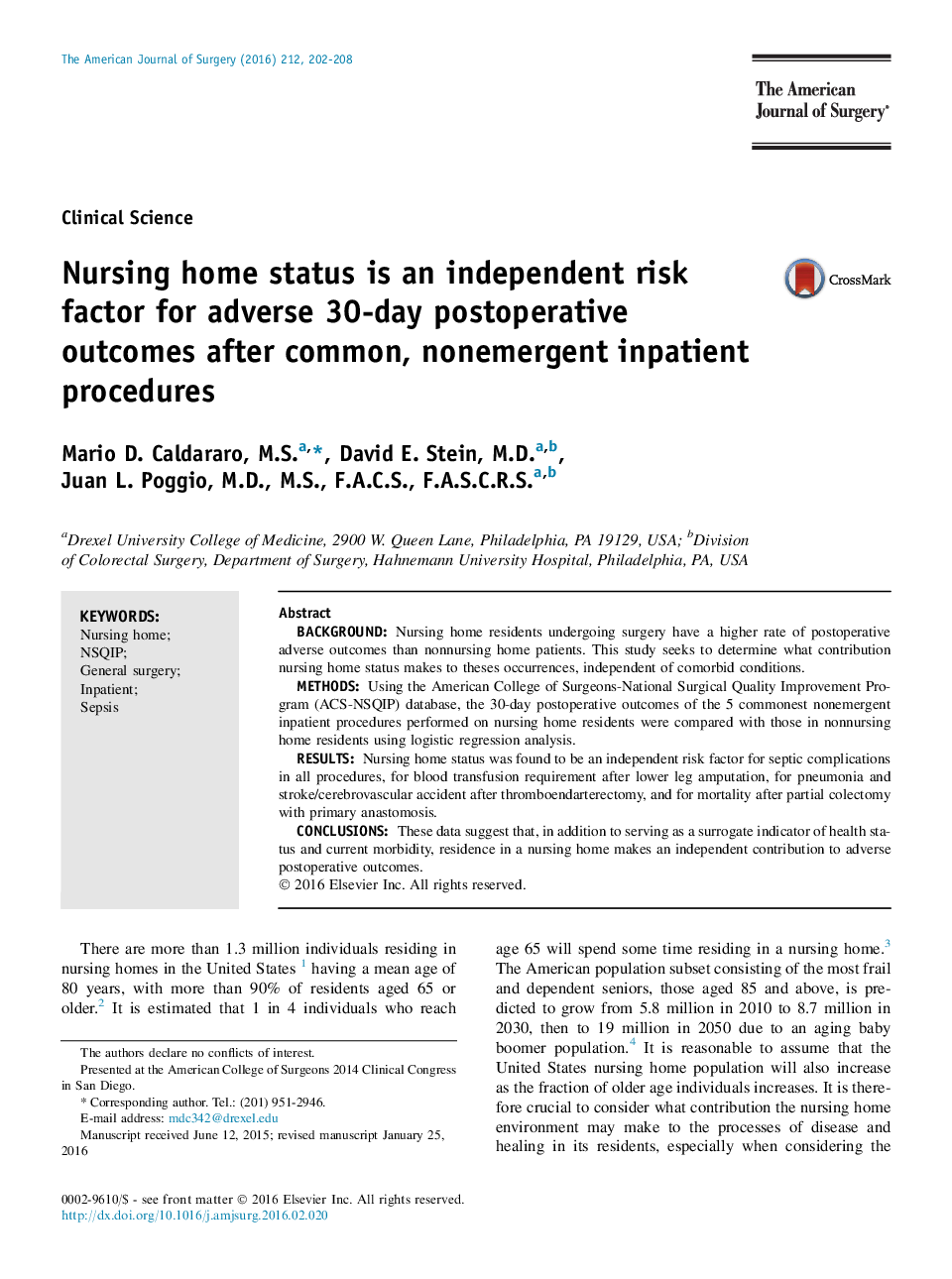| Article ID | Journal | Published Year | Pages | File Type |
|---|---|---|---|---|
| 6250271 | The American Journal of Surgery | 2016 | 7 Pages |
â¢The effect of nursing home status on surgical complications is limited.â¢ACS-NSQIP was used to find the effect of nursing home status on surgical outcomes.â¢Nursing home status was found to be an independent risk factor for adverse outcomes.â¢Nursing home status independently predicted septic complications in all procedures.â¢Nursing home status should be considered in assessing risks of specific complications.
BackgroundNursing home residents undergoing surgery have a higher rate of postoperative adverse outcomes than nonnursing home patients. This study seeks to determine what contribution nursing home status makes to theses occurrences, independent of comorbid conditions.MethodsUsing the American College of Surgeons-National Surgical Quality Improvement Program (ACS-NSQIP) database, the 30-day postoperative outcomes of the 5 commonest nonemergent inpatient procedures performed on nursing home residents were compared with those in nonnursing home residents using logistic regression analysis.ResultsNursing home status was found to be an independent risk factor for septic complications in all procedures, for blood transfusion requirement after lower leg amputation, for pneumonia and stroke/cerebrovascular accident after thromboendarterectomy, and for mortality after partial colectomy with primary anastomosis.ConclusionsThese data suggest that, in addition to serving as a surrogate indicator of health status and current morbidity, residence in a nursing home makes an independent contribution to adverse postoperative outcomes.
